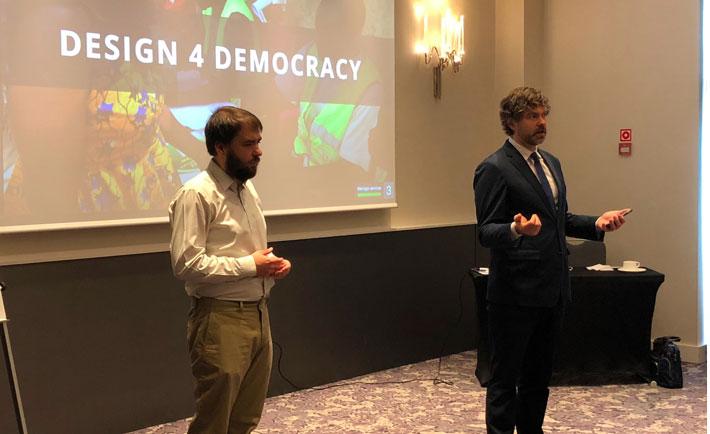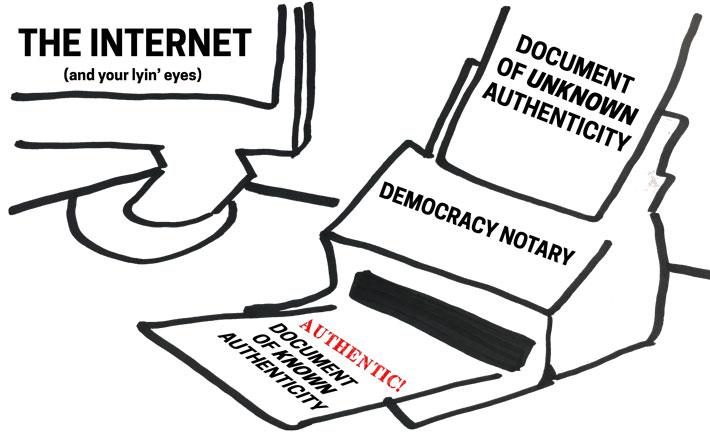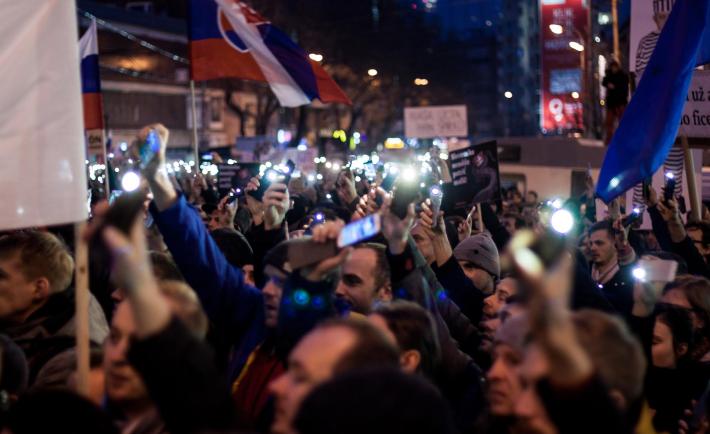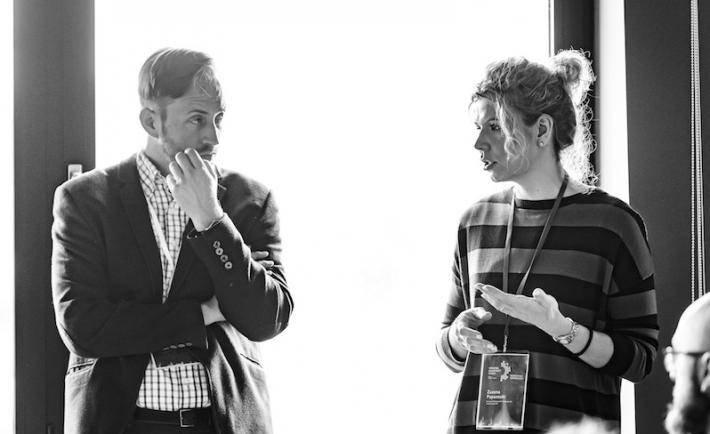Young Voices, Old Problems: The Case of North Macedonia
Taking Wing: “In the land of blood and honey”
Freedom, equality and solidarity should not just be a catchphrase, but a guaranteed right to all citizens. After the horrifying events survived by today’s youth in Bosnia and Herzegovina, we learned the most valuable lesson: don't hate. In the country where war memories are still fresh, there are young people who do not want that to ever happen again. And at a very young age, I learned that I am equal and can determine my future. Following the return from my studies, I knew things were not how I wanted them to be in BiH. I didn’t like the fact that we are divided, that the unemployment rate is high and that only a few opportunities for youth exist. While some people tend to let things go and wait to see what happens, I did not want to be observer. I wanted to be a participant. I became involved in politics to stand up and make a change.
Cybersecurity in Ukraine: Deep Dives vs Broad Brush
The internet has never felt like a scarier place. Whether from sophisticated nation-state actors or freelancing hackers, democracy and human rights organizations face dangerous threats online. Despite the risks, civic and political players must be active in the digital arena with their country’s citizens to have an impact. NDI is working to help these organizations engage online and stay safe. Ukraine is in a dangerous digital neighborhood so political parties, civil society organizations and elected officials have a heightened need for cybersecurity.
Sorting Truth from Truthiness in the Digital Age
“Who you gonna believe” – as the comics say – “me, or your lyin’ eyes?” When it comes to politics, cognitive bias has always given citizens a strong push to believe “their side,” whatever the evidence to the contrary suggests. As disinformation swamps the internet, the problem has become much worse with lyin’ evidence that’s all too easy to believe. Increasingly, information is forged or manipulated. Convincing but fake, this disinformation fuels hyper-partisan hatred, bolsters conspiracy theories and undermines critical democratic institutions. But identifying disinformation is only one piece of the puzzle. What we need is a way to stop forged information entirely; a way to prove that content is original and legitimate.
A Once in a Generation Opportunity - LGBTI Rights in the Western Balkans and Turkey
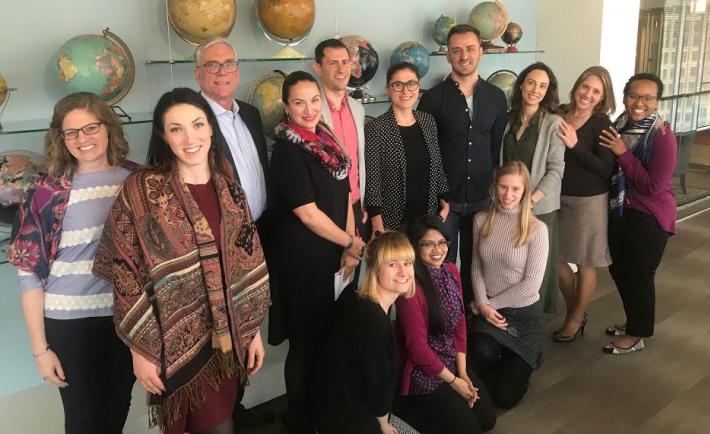
Representatives from NDI staff and the NDI Equal Voices Advisory Council with the Equal Rights Association co-Executive Directors Dragana Todorović and Amarildo Fecanji.
“This is a once in a generation opportunity,” declared Dragana Todorović, Executive Director of the LGBTI Equal Rights Association for Western Balkans and Turkey (ERA), during a recent meeting with NDI staff in Washington, DC. The “once in a generation opportunity” Dragana referenced alludes to a shared political entry point for most member groups: the chance to use the European Union (EU) integration process to advocate for greater LGBTI rights and inclusion at the national level. Leveraging this opportunity now could establish mechanisms and norms for LGBTI equality, such as national action plans – new or strengthened legislation and LGBTI CSO visibility in a mainstream political processes – that would have an enduring impact for years to come.
To protect their democracy, Slovak youth gather in largest protests since the fall of communism
In recent weeks, Slovakia has experienced massive protests at a scale unseen since the fall of the communist regime in 1989. The protests have been organized throughout the country by young people in their early 20s, many of whom haven’t been engaged politically before. In fact, many of the youth now protesting were born into democracy and barely remember the fight against the authoritarian regime of the late 90s, let alone life under the Soviet-aligned government that came before it. The protests we are currently witnessing, initially fueled by the unprecedented murder of investigative journalist Jan Kuciak, have already resulted in the resignation of the minister of interior and, later, of Prime Minister Robert Fico’s cabinet. While the protests triggered the resignations, civic unrest toward Fico’s cabinet already existed due to accusations of corruption and alleged mafia ties to political elites. However, Slovaks are now demanding Za slusne Slovensko – “Decency in Slovakia” – which means politics clean of corruption, mafia connections and attacks on journalists.
NDI Goes to Brussels
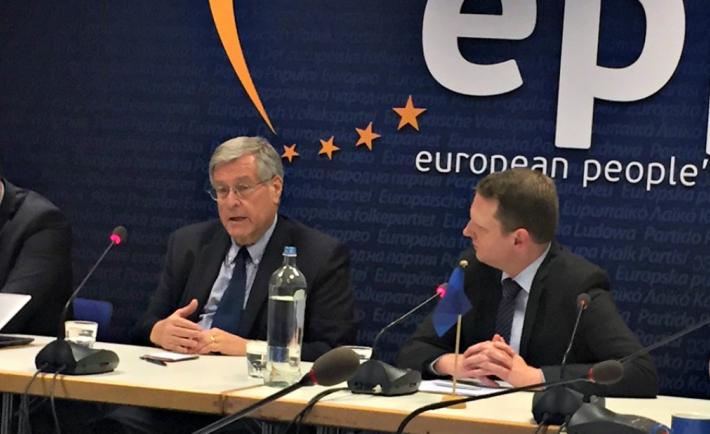
NDI President Ken Wollack addressing leaders of the EPP, ALDE and PES parties at EPP headquarters in Brussels, October 2017
NDI President Ken Wollack visited Brussels this fall to discuss how democracy is faring in Central and Eastern Europe as the region confronts heightened Kremlin involvement, democratic backsliding and rising skepticism over European integration. Among other interlocutors, Wollack met with leaders of the European People’s Party (EPP), the Alliance of Liberals and Democrats in Europe (ALDE), and the Party of European Socialists (PES), plus affiliated think tanks. NDI has affiliation with all three party groups and works with them to support political party development and reform.
The European leaders spoke of combining forces in the former Yugoslavia, Central Europe and Eastern Partnership countries to resolve ongoing partisan conflicts that harm good governance and political consensus. It’s the kind of demonstrable engagement that Europe can make at a time when many countries, both in and outside of the European Union (EU), need democracy booster shots. NDI’s in-country programs and longstanding relations with European political parties across the mainstream spectrum make the Institute a bridge between Brussels and Europe’s eastern reaches.
Roma integrate in one Slovak town—and everyone benefits
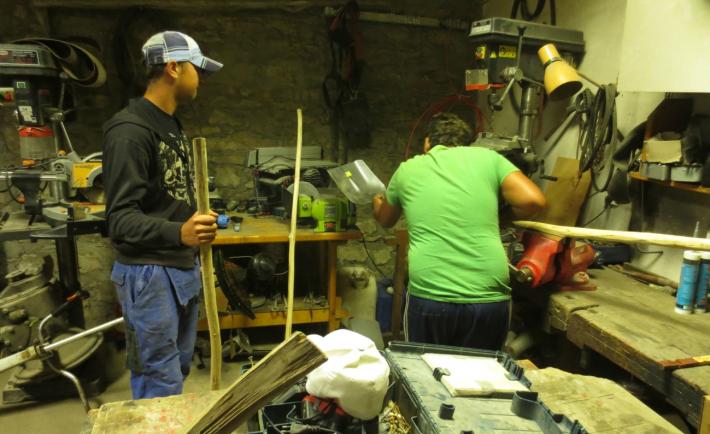
Two Roma employed by the municipal enterprise in Spissky Hrhov, Slovakia, show that the “whole community” approach to democracy and human rights begins at the local level
Like other small towns in this mountainous region of Slovakia, Spissky Hrhov faced tremendous uncertainty in the aftermath of the democratic revolution of 1989 and Slovak independence in 1993. People rejoiced in the overthrow of communism. But with a moribund economic base, no evident means to attract investment, and ethnic divisions, Spissky Hrhov seemed consigned to economic subsistence and social conflict.
For Spissky Hrhov’s sizable number of Roma residents, the situation was particularly dire.
NDI Changemaker: Through the Barbed-Wire Fence Toward Democracy
I grew up in the capital of what is now Slovakia, right on the river that borders Austria. I remember being near this very river, peering over to see what was on the other side. A barbed-wire fence sat between the two countries, a literal and figurative separation between democracy and the “Iron Curtain” that laid itself across Central and Eastern Europe at the time. The presence of the fence is something that I have since held in my mind; it was and continues to be a part of my daily reality - something continuously propelling me toward democracy.
Grounding Theory in Practice: Youth programs in Jordan and Kosovo
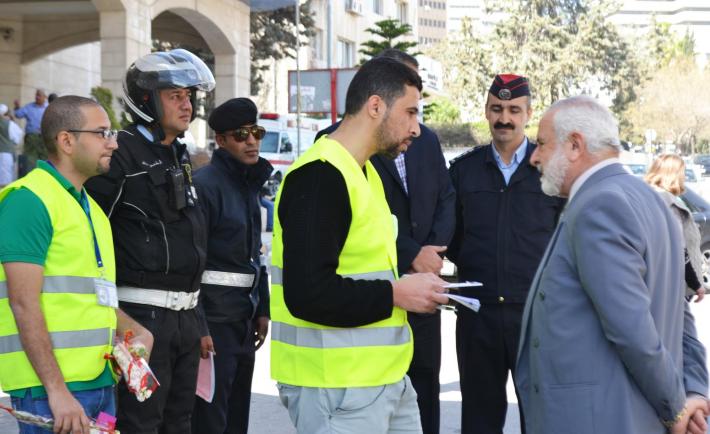
Usharek+ participants in Jordan launch their advocacy campaign with the goal of improving traffic safety.
NDI’s new theory of change unifies important elements of youth political participation programs and depicts how they can interplay to change practices of youth participation. This theory, which I blogged about last month, was not merely academic exercise from the “ivory tower.” It draws on discussions with young politically active women and men across Africa and Latin America, collaborative discussions with democracy and governance practitioners from around the world, and deep reviews of effective youth programs NDI is conducting in Jordan and Kosovo. The Jordan and Kosovo programs show how the theory of change can play out in practice.

_1.jpg)
